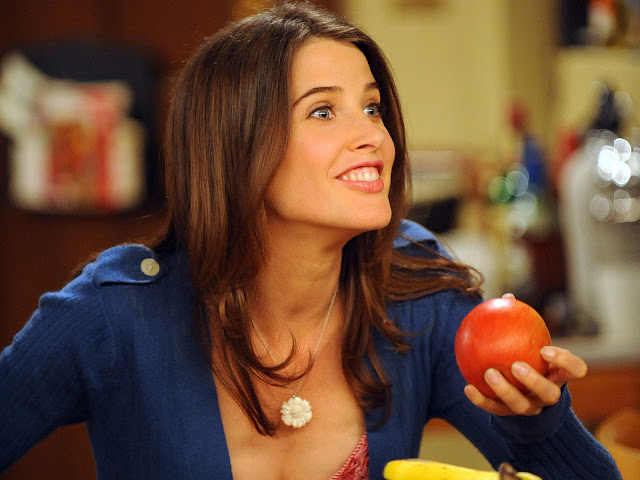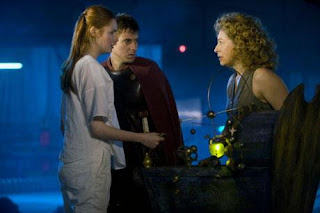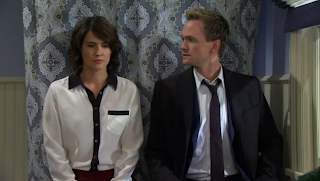There’s been a bit of a hullabaloo in the past few days over
the recent episode of Doctor Who. I
already covered that pretty extensively earlier this week, but I missed the one
bit that people seemed most upset about.
In the episode, Amy and Rory are having a fight. In fact,
they’ve gotten a divorce. Rory is positive that he loves Amy more than she
loves him, and Amy is sure that Rory will grow to hate her because she can’t
have children.
It’s rather a minefield of a conversation, don’t you think?
Of course, Rory and Amy talk it out and decide that they
really do love each other and it’s all fine. Well, maybe not fine, but
workable. They can deal with this. Rory needs to notice that Amy does and always
has loved him, and Amy needs to understand that Rory will always love her even
if he does want kids. That doesn’t change how he feels about her.
The controversial bit, of course, was Amy’s sadness about
being infertile. Since it was something that was forcibly done to her in the
previous season, naturally it’s something that she should be dealing with now.
This makes sense. But quite a few people are upset that it came up in the
context of Amy’s sadness that she can’t give Rory a child. Instead of it being
about her feelings towards her own body, the show placed the onus on Rory to
establish that it was okay.
So, I kind of get where the angry people are coming from.
That is a rather problematic way of looking at Amy’s relationship with her
body.
But this reading ignores something kind of important: Amy is
infertile. Amy Pond is an infertile lead character on a popular television show
where her fertility or lack thereof is a matter for emotional development, but
not a major plot point.
This is kind of a big deal.
Infertility is not often treated by the media. It’s
surprisingly common (10% of women 15-44 in the US have “impaired fecundity”
according to the CDC), but not an overly common for television shows to
address.
Well. Not an overly common for television shows to address
in a non-judgey way. The Criminal Minds
and Law and Orders of the world have
given us plenty of episodes that deal with crazy infertile women who steal
other women’s babies or help their husbands kidnap young women so that they can
be raped and have babies for the couple (Actual episode of Criminal Minds. Eugh.). The crazy infertile lady is our image of
what it means to not be with child, and that’s kind of…nuts.
There are a few examples we can pull out, of course, where
women struggled with their ability to give their husbands perfect little spawn.
Monica and Chandler went through fertility treatments on Friends, before eventually choosing to adopt a pair of twins.
Monica stressed about how this might mean she didn’t bond with the babies, or
how she was worried about what the biological mother was doing. And these are
all concerns. But the show focused much more on Monica’s desire to be a mother
than on her issues dealing with her own infertility.
 |
| Womanly rage at having no kids, right? |
Similarly, on Sex and
the City, Charlotte and her husband struggled to have a kid, and ended up
adopting a girl from China. That’s sweet, and a lovely way to go if you can’t
have kids yourself. Or even if you can. Adoption is a (usually) wonderful
thing.
Of course, though, we do have to remember the bad too. Like
when Pamela Ewing took a swandive off the roof because she was desolate over
her inability to get pregnant on Dallas.
I think for most people, this is the image that actually stuck.
For me, though, I think the more important conversations are
the ones raised by shows like How I Met
Your Mother. In the most recent season, child-phobic Robin discovered that
she was incapable of having kids. She found out when she went to the doctor,
thinking she was pregnant. She’d acclimated herself to the idea of having a
child, only to discover that that would never happen. The ending of that
episode is one of the saddest things I’ve ever seen. It’s on my list of reasons
why HIMYM is not really a comedy.
But the important part of that storyline was Robin and her feelings about her infertility.
It wasn’t about her deciding that she would someday adopt a child, or that she
didn’t like kids anyway. It was her questioning of herself in the light of this
information. Am I still a woman if I can’t have children? What if my future
partner wants kids? Who am I? Even though Robin didn’t actually want children,
she still had to deal with her insecurity rising up from this information.
It’s a side-effect of our culture’s obsession with children,
that women are associated incredibly strongly with motherhood. Men are men, not
necessarily fathers, but women are mothers or potential mothers or unsuitable
mothers or too old to be mothers. We are defined by our wombs.
Robin and Amy’s questions are the fundamental questions that
need to be answered if we are to deal with women’s health in a real and
considerate way. What does it genuinely mean to lose the use of your primary
sexual characteristic? Are you still
a woman?
Obviously the answer to that is yes, because like the
question of what makes you human, you are a woman if you say you are. So the
question of whether a woman’s identity really resides in her womb is one that
excludes all intersex women, all transwomen, and anyone else whose identity
does not fit on rigid binary sexual definitions.
 |
| I hope you understand how sad this image is. |
But. Robin and Amy need to ask those questions. Robin needs
to realize for herself that even though she can never have children, she is
still a woman, and Amy needs to understand that she is still a full member of
her marriage. We need to have this conversation in order to come out the other
side, where we’re all confident in our identity. Understanding is not the same
as knowing. I have no doubt that Amy knows she is still a woman. But I do doubt
that she entirely understands.
We need stories like Amy and Robin’s, so that we can
consider these questions for ourselves. We need to be reminded that it’s not
all a shrug and a designer baby catalog. Sometimes we need a minute to actually
adjust to the idea of what such a diagnosis means for us and for our partners.
And so even if the storyline wasn’t entirely played out on Doctor Who, it’s important that we see
this side. This unhappy, uncomfortable conversation that has to happen. Who am
I? What makes me a woman?
I don’t have any easy answers.
 |
| Let's just say that I needed something to cheer me up now and leave it at that. |




Most people I've seen upset at Amy's infertility are using it as another "she's so terrible" thing, this time that how dare she prioritise her feelings by giving Rory up so he can find happiness and children with someone else. (Amy hate seems to engender a talent for rhetorical contortion).
ReplyDeleteI never understood all the hate for Amy. She's flawed, sure, but all good characters are.
DeleteHi, Nice post thanks for sharing. Would you please consider adding a link to my website on your page. Please email me back.
ReplyDeleteThanks!
Randy
[email protected]
Superb. I really enjoyed very much with this article here. Really it is an amazing article I had ever read. I hope it will help a lot for all. Thank you so much for this amazing posts and please keep update like this excellent article.thank you for sharing such a great blog with us. expecting for your.
ReplyDeleteBest Infertility Specialist in Noida
Important point of Infertile couple
Very nice blog! If you are having any kind of Infertility problem, then visit Gem Hospital & IVF centre. This is the best IVF centre in Punjab
ReplyDeleteThis information is meaningful and magnificent which you have shared here about the infertility specialist. I am impressed by the details that you have shared in this post and It reveals how nicely you understand this subject. I would like to thanks you for sharing this article here. best lady doctor in Jaipur
ReplyDelete